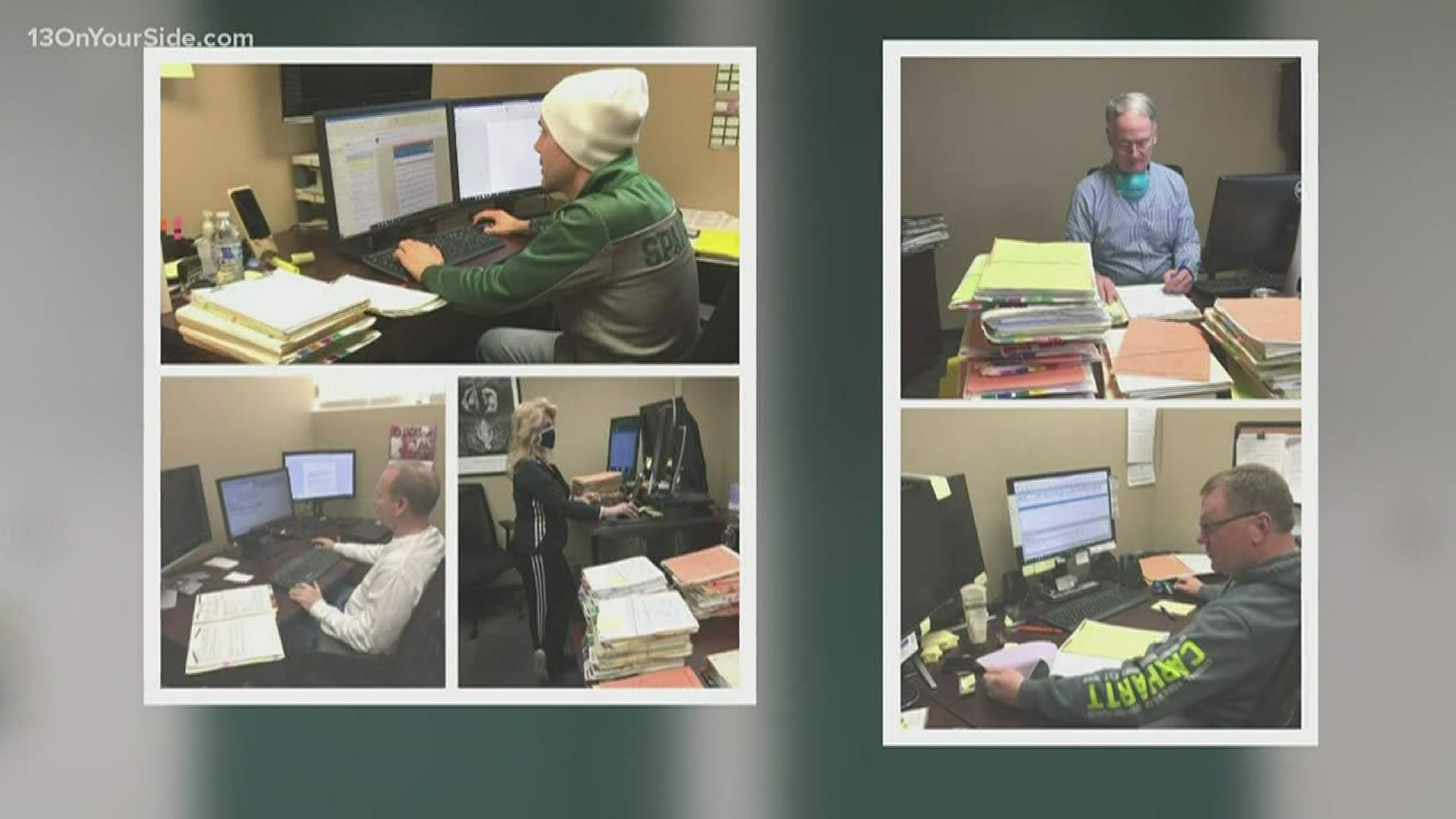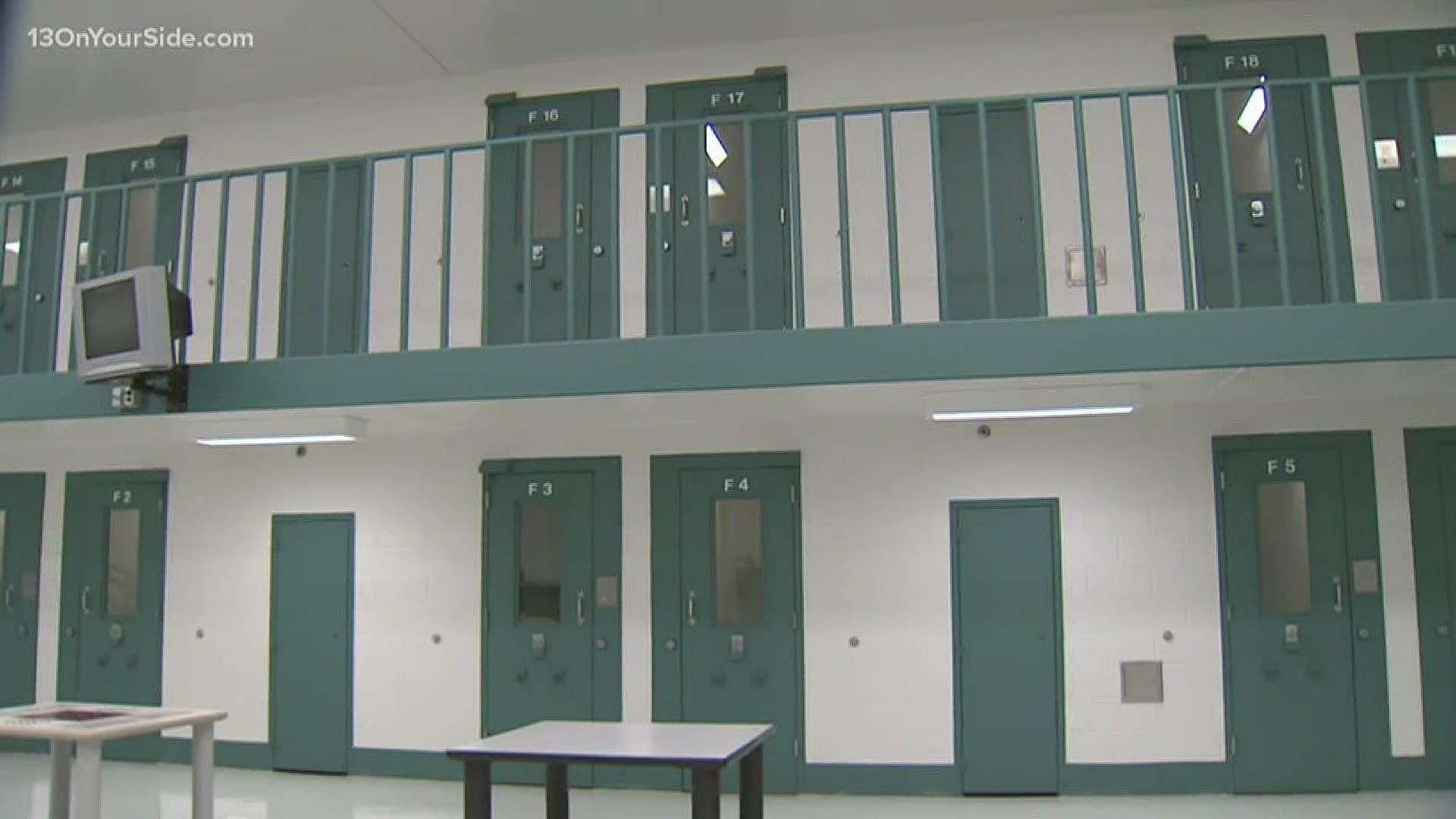The Michigan Department of Corrections can only release prisoners already eligible for parole, any type of early release could happen only under an executive directive. On Friday, the governor said she had no plans for one.
"There's nothing I can do right now to increase that number in a safe way," Gov. Gretchen Whitmer said during an afternoon press conference.
The governor said she would not have a way to ensure proper housing and public safety, if she granted early release for prisoners.
"If additional measures need to be taken, we will be prepared to take them," Whitmer said.
The ACLU of Michigan has urged the governor to release elderly and medically frail prison inmates, the populations most at risk with COVID-19.
"Everyday that we wait on reducing these populations becomes a death sentence for so many people," said Kimberly Buddin, policy counsel for ACLU of Michigan.
Buddin said the ACLU has discussed with the governor's office various ways that prisoners could be released safely.
"While there may be obstacles to overcome, it is doable," Buddin said. "I think the thing we forget is that many people who are currently incarcerated have homes and families that are willing to take them in and willing to support them."
Over 500 prison inmates have tested positive for the virus across 15 different facilities, as of Friday evening. Seventeen of them have died.
PAROLING PRISONERS
About 5,000 of the roughly 38,000 prisoners in Michigan are currently eligible for parole. But, Chris Gautz, a spokesman for the MDOC, said the parole board is walking a fine line to determine who is safe to release.
Gautz said when the parole board cross referenced lists of parole eligible prisoners, elderly or medically frail prisoners and nonviolent offenders there were only about 50 people on that list.
"But, we are looking at cases in this new light and considering individuals who are up for parole, specifically those who are older or medically compromised," Gautz said.
Public safety, Gautz said, is still the first priority as the parole board now works 7 days a week to examine thousands of cases.
"I don't want people to think that the Department of Corrections is just opening up the doors and letting hundreds or even thousands of prisoners out. That is not the case," Gautz said.
Paroled individuals have to wait 28 days before they are released, that time frame allows for prosecutors and any victims to be notified. In cases where there is no victim, Gautz said the board is now asking prosecutors to waive the 28 days. Only about a third of prosecutors are approving those waivers so far.
"We are not pressuring them. We just simply ask that when there is not a victim, if the prosecutors are willing to waive those 28 days," Gautz said. "Then we can get that person out a bit sooner."
MDOC BATTLING COVID-19
Parnall, Lakeland, Women's Huron Valley and Macomb correctional facilities are all considered to be experiencing virus 'outbreaks'.
“Those are the sites where we are really focused on trying to do everything we can to lower those numbers, so that we have fewer staff and prisoners test positive," said Gautz.
Gautz said that prison inmates who do test positive are then moved to one of three isolated facilities to ensure they do not spread the virus further. He said there is also now a recovery facility set up as an extra precaution to house those who appear to have recovered from the virus.
As of Friday, there are 191 MDOC employees, which includes non-prison staff, who have tested positive for the virus, and two employees have died. The department is quarantining any staffers who come in close contact with an employee who tests positive, which is leading to strains on staff. The strains are especially prevalent at the Lakeland and Parnall facilities.
"At one point at both of those facilities a third of their staff were unable to come to work," Gautz said Friday.
Gautz said the department has worked diligently to communicate to staff the importance of not working with any symptoms to avoid instances like those at Parnall and Lakeland, where staff were reassigned and working long hours.
"If someone doesn't come in to cover your shift, you don't get to just go home, you have to stay there until they can find somebody to replace you," Gautz said. "It creates strain, it creates overtime in what is already a very stressful time."
Employees are being screened for a fever or symptoms prior to their shift, Gautz said. Both inmates and employees are now also required to wear masks.
Gautz said the MDOC is already reporting recoveries of both staff members and prisoners who tested positive for the virus.
Staff who work at one of the four 'outbreak' facilities are now able to stay at hotels to avoid spreading the virus to their loved ones. All full time prison staffers are also receiving $750 bonuses on each pay check, according to the department.
More stories on 13 ON YOUR SIDE:
Emma Nicolas is a multimedia journalist. Have a news tip or question for Emma? Get in touch by email, Facebook or Twitter.
► Make it easy to keep up to date with more stories like this. Download the 13 ON YOUR SIDE app now.


